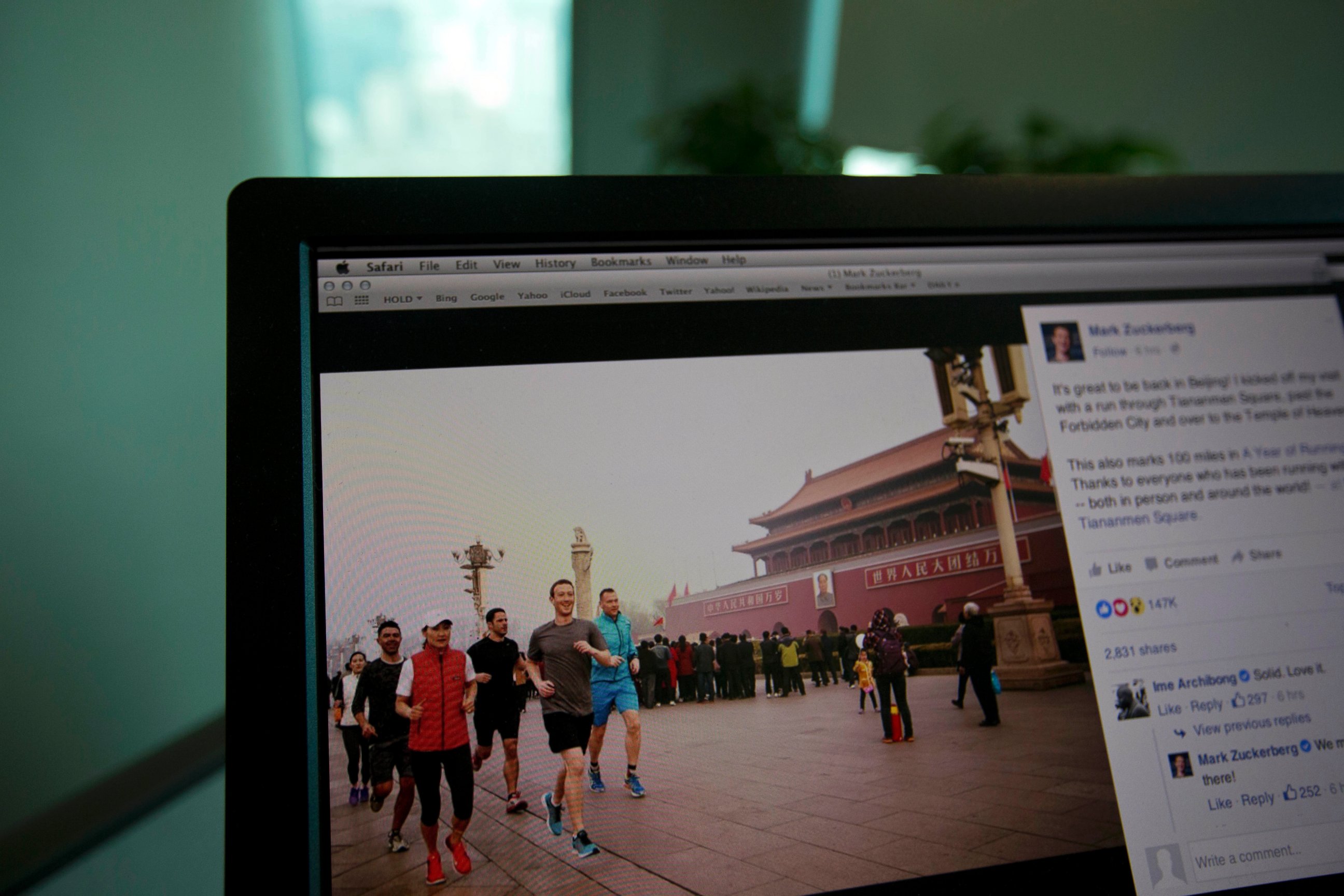Facebook Users Warn Mark Zuckerberg of Running in Beijing Without Face Mask
The air quality index was at "hazardous" levels this morning in Beijing.
— -- Mark Zuckerberg’s morning run was on the rebellious side today in Beijing, when he ran through smog-filled Tiananmen Square without a face mask.
The co-founder and chief executive of Facebook wrote a post this morning -- most likely using a virtual private network, since the Chinese government blocks the site -- around 10:30 a.m. local time that read, “It's great to be back in Beijing! I kicked off my visit with a run through Tiananmen Square, past the Forbidden City and over to the Temple of Heaven.”
In the photo, he is running in a group with several other people, all of whom are not wearing face masks.
Several Facebook users commented on Zuckerberg’s post, warning him of the severe air pollution there.

Facebook user Yiu Sing Lee commented, saying “the smog in beijing is too serious and harmful for running.”
Another user, Shou Wang, wrote “I don't understand why you would do something like this to yourself... The AQI in Beijing is like 300 now... You know the damage to your lung is permanent and could be detrimental right.”
On Friday morning, the air quality index for PM2.5, which is the ultrafine particles that damage respiration, was above 300 micrograms per cubic meter, according to a monitor calculated by the United States Embassy in Beijing. This is at a “hazardous” level under American air-quality standards, and the Environmental Protection Agency deems AQI values of 201 to 300 being “very unhealthy.”
"When the 24-hour concentration of particle pollution is above 250 micrograms per cubic meter, the EPA recommends staying indoors -- in a room or building with filtered air -- and avoiding all physical activity outdoors," EPA press secretary Melissa Harrison told ABC News today.
The negative health effects that can occur from these high AQI levels include reduced lung function, aggravated cough and pain when taking a deep breath, as well as severe effects for those with asthma or other respiratory conditions.
Face masks are not effective at filtering out the ultrafine particles, however, a respirator "could provide some level of protection if it is able to filter out very small particles," Harrison said.
Facebook did not immediately respond to ABC News' request for comment.




